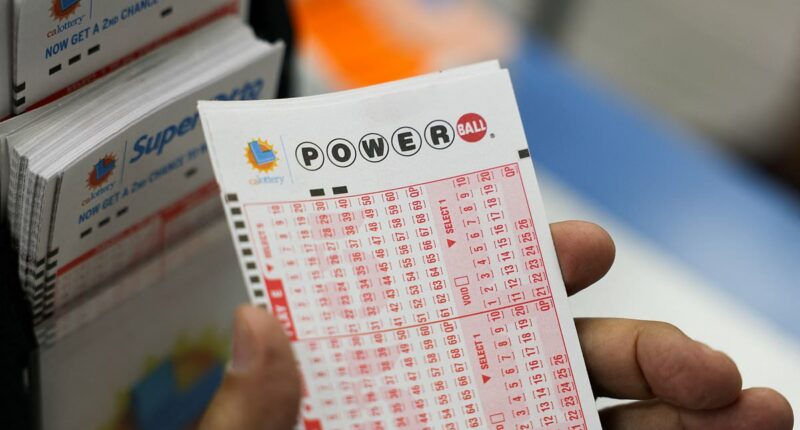Share this @internewscast.com
Lottery fans are reeling after learning just how much the $1.8 billion Powerball prize will shrink once Uncle Sam takes his cut.
Saturday night’s lottery drawing has escalated to the second-biggest in U.S. history, but experts caution that the actual payout significantly differs from the staggering amount displayed.
According to USA Mega, any Powerball prize over $5,000 triggers an automatic 24 percent federal withholding. And that’s just the beginning.
Most winners will end up owing a total of 37 percent in federal income tax, slicing more than a third off the sum.
Opting for the lump-sum payment of $826.4 million would lead to the IRS taking an initial cut of about $198 million. An additional $107 million would also be payable come tax season.
That leaves the winner with roughly $521 million before state taxes are factored in.
The state you reside in makes a substantial impact. In states without income tax on lottery winnings, such as Florida, Texas, California, Washington, Tennessee, South Dakota, New Hampshire, Wyoming, and Delaware, winners retain the largest portion, netting just over half a billion dollars.
Conversely, in states with high taxes like New York, where the top state rate is 10.9 percent and New York City residents incur an additional 3.876 percent, the prize can shrink by an excess of $100 million.
Washington, D.C., with its 10.75 percent levy, is nearly as punishing.

Social media erupted as fans fumed that billion–dollar jackpots shrink dramatically once taxes are deducted

Saturday night’s lottery has increased to the second-largest in U.S. history, yet experts advise that the actual payout is substantially less than the astonishing figure implied.
The disparity is just as staggering with jackpots in the hundreds of millions.
According to USA Mega’s review of an August drawing, a winner in Florida taking a $350.7 million cash lump sum would pocket more than $220 million post federal taxes.
In New York City, that same prize would drop to just $182 million once state and local taxes were applied.
The tax bombshell has sparked a furious response on social media.
‘A BILLION in taxes???’ one user wrote on X. ‘That’s insane to me.’
Another added: ‘The IRS is the biggest winner in every lottery. Taxation is theft!’
Others joked that only lottery winners seem to be held accountable, with one viral post declaring: ‘The only billionaire paying their fair share is a lottery winner.’
Some critics turned their ire toward the original justification for state lotteries.
‘The national lottery was sold as a way to pay for public education,’ one user wrote. ‘It takes in billions a year, yet taxes keep rising. WHERE IS ALL THAT MONEY GOING??’
Others branded the system outright predatory.
‘Lotteries are government ponzi schemes… preying on the lower class,’ one post read.

Others blasted the system as ‘predatory,’ while pragmatic voices urged winners to consider the annuity option
A more pragmatic voice argued: ‘It’s literally millions you didn’t have to begin with. Take that annuity.’
Some social media commentators noted that much of the outrage stems from a misunderstanding.
The advertised jackpot reflects a 30–year annuity payout, while the lump–sum option is significantly smaller because it’s essentially a discounted early cash–out.
Taxes are only applied to that cash figure, not the full jackpot.
That’s why many advisors, including financial guru Suze Orman, recommend the annuity as the smarter choice
It guarantees the full advertised jackpot spread over three decades, with payments that rise by five percent each year, avoids a crushing one–time tax hit, and shields winners from burning through their windfall too quickly.
Saturday’s $1.8 billion drawing may be the stuff of dreams, but experts warn that reality sets in fast. As USA Mega bluntly puts it: ‘If you win the jackpot, consult a good accountant and tax attorney for ways to minimize your tax liability – before you claim the prize.’

















